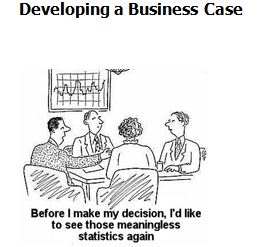How often have you heard people, when confronted with a problem in an organisational environment, declare: "We're fighting against the system." Maybe, but the comment implies that the person or people engaged in the 'fighting' are detached from the 'system'. The title of the post states my position, which is that when we are engaged in activities with others then we are all part of an organisational system. Clearly our individual roles have varying degrees of influence on the system's behaviour and crucially, the way the system behaves might not be what is intended, thus giving a feeling of fighting a battle for some of the participants. Stafford Beer coined and frequently used the term POSIWID (the purpose of a system is what it does) to refer to the commonly observed phenomenon that the de facto purpose of a system is often at odds with its official purpose. So if, for example, a company has as one of its stated objectives, to create highly satisfied customers, yet all too often it does not meet its customers' expectations, then its 'new purpose' is definitely at odds with what was originally intended and won't change just by top management rewriting the mission statement.
I once worked for a large multinational company with 145,000 employees. It was steeped in traditions and rigid working practices that had created a distinct culture where lack of trust was endemic. As such it was very difficult to get things done if you followed the rules. Shortly after I joined the company, I asked my manager how he coped with the stifling bureaucracy. I will always remember his answer: "Forgiveness is easier than permission." That was the advice I followed and it seemed to work for me during the six years that I worked for the company and I didn't seem to have to ask for forgiveness very often!
Clearly one's attitude to rules has to be carefully assessed. It doesn't make any sense not to follow the rules of traffic lights - red=stop, green=go. On the other hand, to take a short cut across the grass, as illustrated in the photo, could eventually create a more efficient route in the park, which might even lead to the unofficial track being paved! The first ten, or even a hundred, of the walkers might have felt slightly guilty as they walked across the grass rather than using the path but with the passage of time, it would eventually become the accepted route - the 'new purpose' of the pathways in the park! This is how evolutionary change happens, little-by-little and ultimately leading to significant effects.
So don't knock the system, accept the fact that you are part of it and its resistance to what can't be done can lead to understanding the part that you can play in seeking and implementing change.
Clearly one's attitude to rules has to be carefully assessed. It doesn't make any sense not to follow the rules of traffic lights - red=stop, green=go. On the other hand, to take a short cut across the grass, as illustrated in the photo, could eventually create a more efficient route in the park, which might even lead to the unofficial track being paved! The first ten, or even a hundred, of the walkers might have felt slightly guilty as they walked across the grass rather than using the path but with the passage of time, it would eventually become the accepted route - the 'new purpose' of the pathways in the park! This is how evolutionary change happens, little-by-little and ultimately leading to significant effects.
So don't knock the system, accept the fact that you are part of it and its resistance to what can't be done can lead to understanding the part that you can play in seeking and implementing change.

















